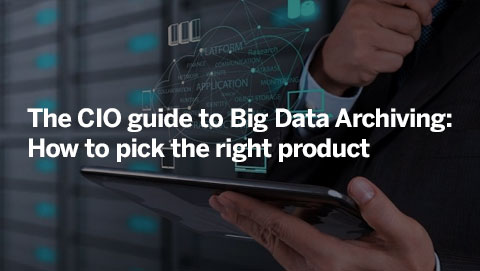Colorado Privacy Act
What is the Colorado Privacy Act?
The Colorado Privacy Act (CPA) is a state-level privacy law designed to safeguard the personal data of Colorado residents. It sets stringent regulations for businesses handling personal information, emphasizing transparency, data security, and individual rights. Organizations must comply with data protection principles, facilitate individual rights, and face significant fines for noncompliance, ensuring robust protection of personal information.
Overview of the Colorado Privacy Act
- Law: Colorado Privacy Act
- Region: Colorado
- Signed On: 07-07-2021
- Effective Date: 01-07-2023
- Industry: All industries that do business in Colorado
Personal Data Under the CPA
The Colorado Privacy Act (CPA) defines personal data broadly, encompassing any information that can be used to identify or is reasonably linkable to a specific individual. This includes a wide range of data points, categorized as follows:
- Identifiers: Any form of identification, including names, aliases, physical addresses, distinct personal markers, online handles, email addresses, account names, social security numbers, driver’s license numbers, passport details, or comparable identifiers.
- Commercial Data: This category captures information about a person’s purchasing habits and tendencies, like records on personal possessions, acquired goods, or services.
- Biometric Data: Physiological, biological, or behavioral characteristics that can be used to identify a specific individual (e.g., fingerprints, facial recognition, iris scans, voice recordings).
- Geolocation Data: Approximate or precise geographic location information.
- Electronic records: This includes personal information, such as call recordings, videos, or social media posts where the individual can be identified.
- Employment Information: Information about a person’s job history, performance evaluations, or other work-related data.
Data Protection Principles
The act was built on key data protection principles, such as transparency, purpose limitation, data minimization, security, integrity, and accountability. Businesses must adhere to these principles when collecting, processing, and storing personal data.
Rights Under the Colorado Privacy Act
Under the act, Colorado residents are granted several rights regarding their data, including access, correct, delete, and opt-out of the sale of their information. Businesses are obligated to facilitate these rights upon request.
Who Needs to Comply with the CPA?
It applies to businesses that conduct business in Colorado or target Colorado residents and meet certain thresholds regarding collecting and processing personal data. This includes both personal data controllers and processors if they meet one or both of the following criteria:
- Data Processing Thresholds: The business “processes” the personal data of at least 100,000 Colorado residents in a calendar year.
- Data Sale and Revenue Generation: The business derives revenue from the sale of personal data of at least 25,000 Colorado residents in a calendar year.
Noncompliance Fines
It doesn’t specify a set fine amount for non-compliance. It treats fines as civil, not criminal. This means the intention of the violation isn’t considered as heavily as in a criminal case. The penalties can range from $2,000 per violation per consumer to a maximum of $500,000. Here’s a breakdown of the potential fines:
- Minimum: $2,000 per violation
- Per Consumer: The fine applies to consumers whose data rights were violated.
- Maximum Cap: Total penalties cannot exceed $500,000 for a single incident.
Compliance Authority for the CPA
The Colorado Attorney General’s office enforces the CPA and ensures compliance with its provisions. Businesses must prepare to cooperate with investigations and audits conducted by the Attorney General’s office to demonstrate compliance.
In conclusion, the Colorado Privacy Act (CPA) establishes comprehensive regulations for protecting the personal data of Colorado residents. To comply with the CPA, organizations should prioritize transparency, data security, and respect for individual privacy rights. Implementing robust data protection measures and policies like data masking is essential to meeting the CPA’s requirements and safeguarding personal information effectively.
FAQs
What makes the Colorado Privacy Act (CPA) unique compared to other privacy laws?
The CPA introduces a universal opt-out mechanism for targeted advertising, distinct from other privacy laws. It empowers Colorado residents to opt out of the processing of personal data for such purposes, enhancing control over their online experiences.
Are there any exemptions under the Colorado Privacy Act (CPA) for small businesses?
Yes, small businesses with fewer than 25,000 Colorado residents’ data or less than 50% of gross revenue from selling personal data are exempt from certain CPA obligations. However, they must still comply with core privacy principles and individual rights.
Can individuals request access to their data under the Colorado Privacy Act (CPA)?
Yes, individuals have the right to request access to their data held by businesses subject to the CPA. Upon receiving a verified request, businesses must provide a copy of the requested information and details on its processing within a specified timeframe.
Are there any cross-border data transfer restrictions under the Colorado Privacy Act (CPA)?
The Colorado Privacy Act (CPA) doesn’t explicitly address cross-border data transfers. There are no specific requirements or prohibitions outlined in the law. However, the CPA does emphasize data security and responsible data handling. This indirectly impacts cross-border transfers.





